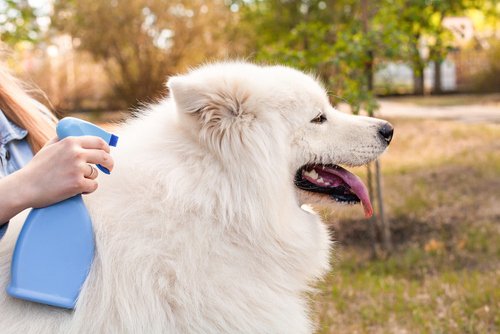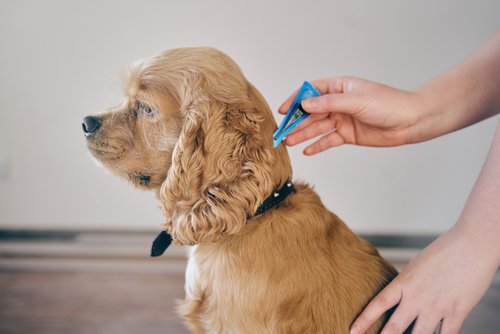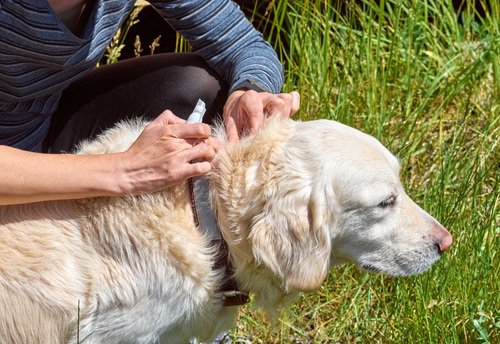Stop the Itch: Flea and Tick Prevention for Puppies
Stop the Itch: Flea and Tick Prevention for Puppies
Welcoming a new puppy into your home is an exciting and rewarding experience. Along with the joy and companionship they bring, puppies also require proper care and attention to ensure they grow up healthy and happy. One crucial aspect of puppy care is preventing and treating fleas and ticks. These pesky parasites can cause discomfort and transmit diseases to your new buddy. Fleas and ticks are common parasites that can affect dogs, especially puppies with developing immune systems. Fleas cause itching, skin irritation, and allergies, while ticks can transmit serious diseases like Lyme disease. Protecting your puppy from these parasites is crucial for their health.

Prevention is Key
Regular Grooming: Brush your puppy's coat regularly to remove loose fur, dirt, and potential parasites, allowing you to spot fleas or ticks early.
Bathing: Use a mild, puppy-friendly shampoo to keep your puppy's coat clean and parasite-free. Consult your vet for an appropriate bathing schedule.
To protect your puppy from fleas and ticks, you can use several effective preventative measures. Topical treatments recommended by veterinarians are easy to apply and provide long-lasting protection against fleas and ticks. Oral medications are another effective option, typically administered monthly, offering convenience for many pet parents. Flea collars provide continuous protection and are ideal for puppies who spend time outdoors. Make sure the collar fits comfortably without being too tight. Using these preventatives will help ensure your puppy stays healthy and parasite-free.
To keep your puppy safe from fleas and ticks, maintaining a clean environment is crucial. Vacuum your home frequently, especially areas where your puppy spends time, as fleas and ticks can hide in carpets, upholstery, and bedding. Regularly wash your puppy's bedding and toys in hot water to eliminate any lingering parasites. Additionally, consider using pet-safe insecticides or natural remedies in your home and yard to reduce the risk of infestation.

Identifying and treating fleas and ticks is crucial for your puppy's health. To check for fleas, part your puppy's fur and look for tiny, dark brown fleas moving through the coat. Also, examine your puppy’s skin for flea dirt, which appears as tiny black specks and indicates an infestation. If you notice any signs of fleas or ticks, consult your veterinarian for appropriate treatment options. Early detection and treatment can prevent more serious health issues. Regular checks will help ensure your puppy stays happy and healthy.

To protect your puppy from fleas and ticks, use fine-tipped tweezers to carefully remove ticks by grasping them close to the skin and pulling them out with steady pressure. Clean the bite area with antiseptic and watch for signs of infection. If your puppy has a flea infestation, consult your vet for treatment options, which may include flea combs, baths, sprays, or oral medications. Regular vet visits are essential for monitoring your puppy's health and ensuring ongoing protection against parasites. Be especially vigilant during peak flea and tick seasons and exercise caution when socializing your puppy with other animals that might carry these parasites.
Preventing and treating fleas and ticks in puppies is an essential aspect of responsible pet ownership. By taking proactive steps to protect your puppy from these parasites, you ensure their health and comfort as they grow. Petland offers a range of products and expert advice to help you keep your puppy safe from fleas and ticks. Our knowledgeable staff is here to assist you in finding the right solutions for your puppy's needs. Your puppy will thank you with wagging tails and endless affection!
